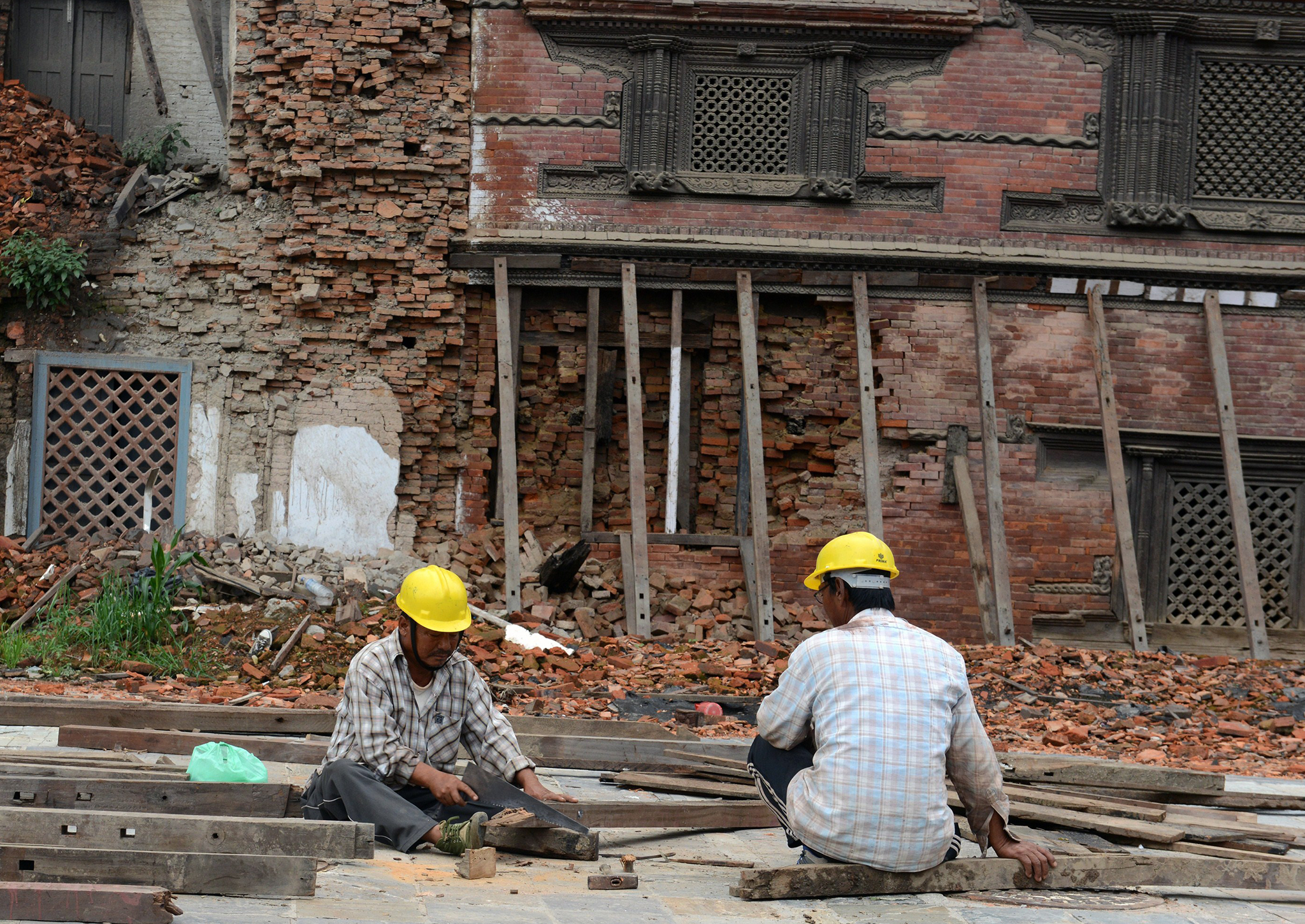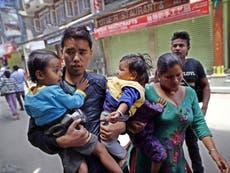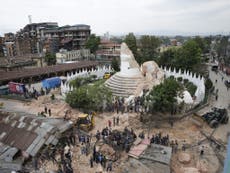The headlines might have stopped, but many parts of Nepal are still in states of emergency
It's been three months since the country's devastating earthquakes, and recovery is far from complete

At 11:56 on 25 April I was with a group of young volunteers in Godavari, about 14 kilometres from Nepal's capital, Kathmandu. We were doing a clean-up in the parish of St. John Vianney Pastoral Centre, and the task that everyone wanted to avoid was cleaning the toilets.
The volunteers had just completed their cleanup and wanted to put stickers on the toilet doors reminding users to “leave the toilets as clean and tidy as they found them”, probably to avoid having to do the same task again in future. But before any stickers made it on to the doors, the earth shook violently beneath our feet.
I quickly told the team to move away from the building, but as the shaking continued it felt like the solid earth had become a rough ocean, and we were small boats being tossed on a gigantic wave before being plunged to the ocean floor.
When the shaking finally stopped, all you could hear were the cries of people, and all you could see were the plumes of brick dust smoke from collapsed buildings. Everyone around me was very afraid and would not listen to my words of reassurance, to remain calm and stay still. They scattered in all directions. It took me half an hour to run to the hostel where they were staying, to make sure that everyone was alright.
In the hours it took me to reach my office in the centre of Kathmandu, videos and photographs of a devastated Nepal – historic monuments reduced to rubble, piles of bricks where people's homes use to be – were transmitted, and the earthquake caught the world's attention.
Now it has been three months since the earthquake, some media outlets have drifted back to do follow-up stories and assess how much progress has been made. The expectation is that things would have already improved for the better. Kathmandu is certainly showing good signs, but out in the remote rural areas we are still in the emergency phase of the recovery process.
The most urgent priorities are to keep one step ahead of the monsoon rains, and getting relief aid to communities who have lost absolutely everything. Key to this is the distribution of corrugated iron sheeting, so that people can reinforce their makeshift homes against the torrential rains.
There is much analysis and evaluation to be done and lessons to be learned from our earthquake: science grappling with how to predict the exact date and time of earthquakes; policy experts considering how best to prepare populations for natural disasters; financial institutions counting the cost of recovery. This is all important, but if we don't put the poorest at the heart of research and analysis, then when the next natural disaster strikes the poor once again will be the hardest hit.
The biggest challenge of all is helping the hundreds of thousands of people who have lost their ability to earn a living. Caritas Nepal, the local agency I work for, has a long history of working to provide work options for the poor and marginalised in communities. The earthquake has pushed back our goals, but we will rebuild them. And when it comes to rebuilding Nepal, we need to make sure everything is safer for the future, but also that communities are resilient enough to cope with the next disaster. And whether the media are paying attention to us or not, we will not stop working until we see these hopes fulfilled.
Father Pius Perumana is Director of Caritas Nepal. Caritas is a partner of the UK aid agency CAFOD, which is supporting its earthquake response work.



Join our commenting forum
Join thought-provoking conversations, follow other Independent readers and see their replies